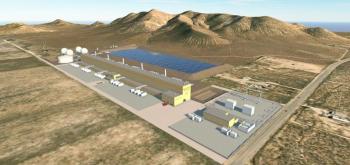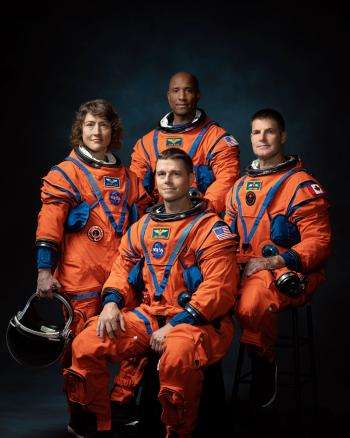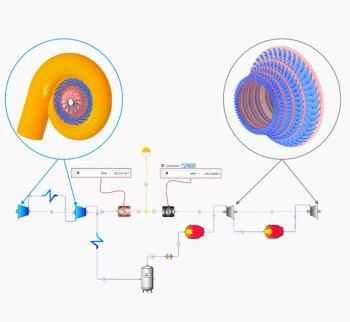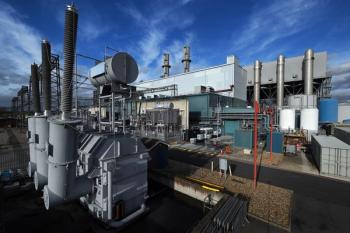
Dresser-Rand enters small-scale LNG production market
Dresser-Rand Company has entered into an important definitive agreement with Tarrytown, New York based Expansion Energy LLC. Under the agreement, Dresser-Rand is granted a worldwide exclusive (for capacities up to 100,000 gallons per day) license to Expansion Energy's proprietary VX Cycle technology for the small-scale production of Liquefied Natural Gas (LNG).
"The agreement with Expansion Energy is consistent with our strategy to provide high-speed rotating equipment solutions to the energy infrastructure markets," said Jesus Pacheco, Dresser-Rand's Executive Vice President, New Equipment Worldwide. The agreement is important because it gives us exclusive rights to serve a new and large market opportunity with our legacy products as well as our recently acquired engine line."
According to Brad Dickson, Dresser-Rand's Vice President and Chief Marketing Officer, "In our on-going evaluation of technologies to complete the value chain for the burgeoning shale markets, as well as solutions for addressing global natural gas flaring and the rapidly expanding markets for LNG vehicle fueling, Expansion Energy's LNG production process met all of the requirements we identified and embodies technology that we can bring to the market quickly. We already have several clients anxious to take multiple units to fuel their fleet operations. We presently believe that the market for this technology will be in the range of $100 to $200 million within just the next 2 to 3 years, and will continue to grow robustly beyond that."
Dresser-Rand believes that the patented VX Cycle is the first technology to provide a cost-effective small-scale LNG production process with capacities as low as 1500 gallons per day--far smaller than any other LNG production system commercially available today. The mobile, skid mounted equipment configuration for this process technology opens up a wide variety of applications in markets currently underserved or not served at all. "Upstream" applications includes: the monetization of flared gas or associated gas to increase revenues for oil companies and reduce their environmental impact, the production of stranded natural gas fields which are not close to existing pipeline infrastructure, and on-site fuel supply for drilling rigs converted to run on LNG. "Downstream" applications include the production of vehicle-grade LNG, allowing LNG to compete effectively with diesel fuel on a cost-per-energy-content (BTU) basis. The use of LNG fuel is increasing rapidly for long-haul trucks; delivery fleets; buses; ships, barges and ferries; railroad locomotives; and construction and mining equipment.
As a first for the industry, the VX Cycle enables the "distributed" production of LNG with small-scale plants, as the technology can utilize natural gas from virtually any high- or low-pressure pipeline or distribution line, or from stranded wells. As such, the VX Cycle eliminates the need for the costly trucking of LNG long distances from large, centralized plants to LNG fueling depots, as is the practice today. Instead, the VX(TM) Cycle produces LNG right at the fueling station or at the wellhead. The VX Cycle technology can also be used to upgrade existing CNG stations to produce LNG and/or a colder, denser CNG product with a higher BTU density versus standard CNG.
Under the agreement, Dresser-Rand will design, package and sell equipment embodying the VX Cycle production technology including Dresser-Rand reciprocating
compressors
and Guascor engine-generator sets, and associated control systems. Dresser-Rand advises that the technology is scalable to the tens of thousands of gallons per day, producing either LNG or CCNG (Cold Compressed Natural Gas) and will be designed in numerous skid-mounted, mobile trailer-mounted and/or stationary modular configurations to suit its clients' requirements.
Driven by rapidly expanding global shale gas development, Dresser-Rand predicts the market for small-scale LNG production plants is in the thousands of units and growing. The United States is the most rapidly growing market and the substantial price disparity between diesel fuel and low priced natural gas has oil-field service operators, oil and gas companies, shipping and delivery companies, and downstream fuel distributors/marketers across the country converting drilling rigs, transportation fleets, and retail fueling stations along the United States interstate highway system to LNG fuel. Benefits for heavy-duty engines to use LNG include lower fuel costs, improved air quality and reduced emissions to meet ever-more stringent environmental regulations. Today, of the approximately 1500 natural gas fueling stations in the United States, only 60 are LNG based, with the balance dispensing compressed natural gas (CNG). LNG is critical for the long-haul, heavy-duty truck market, and the deployment of VX Cycle plants from Dresser-Rand will be a major step forward in building out the substantial infrastructure required to make LNG fuels widely available and cost-effective.
Newsletter
Power your knowledge with the latest in turbine technology, engineering advances, and energy solutions—subscribe to Turbomachinery International today.




